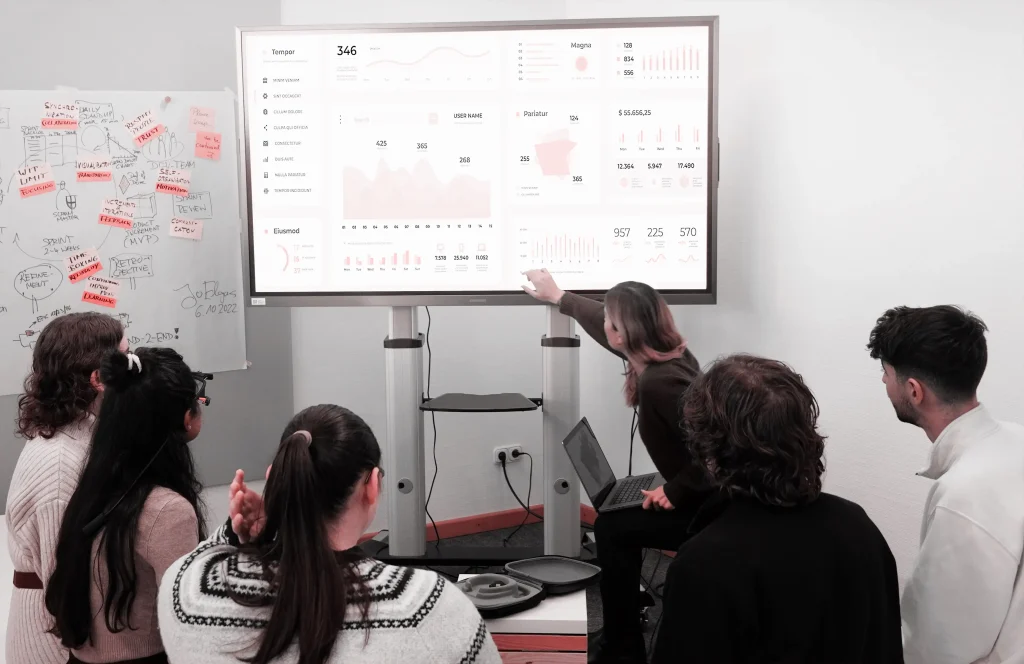The education technology (EdTech) industry has experienced a surge in growth over the past few years, and the future of education in 2025 looks even more promising. With advancements in technology, the increased demand for personalized learning, and the shift towards remote education, the opportunities in EdTech are immense. As we approach 2025, there is no shortage of innovative startup ideas that could revolutionize the way we learn and teach.
In this article, we will explore several EdTech startup ideas that have the potential to shape the educational landscape in 2025 and beyond. These ideas span a range of categories, from AI-powered tutoring to virtual learning environments, and provide solutions for students, teachers, educational institutions, and corporate learning. If you’re an entrepreneur looking to venture into the EdTech space, these concepts can provide inspiration for creating impactful, scalable businesses.
1. AI-Powered Personalized Learning Platforms
As the demand for personalized education continues to grow, AI-powered learning platforms are becoming a crucial part of the educational ecosystem. By using artificial intelligence, these platforms can assess students’ learning styles, preferences, and progress, and create customized learning paths tailored to individual needs.
AI-powered tools have the ability to adapt content based on a student’s strengths and weaknesses, ensuring that each learner receives the most effective educational experience. For example, AI-based tutoring systems can help students master difficult concepts at their own pace, while also providing teachers with data-driven insights to better support their students.
In 2025, personalized learning is expected to become even more sophisticated, as AI continues to evolve. These platforms can integrate virtual reality (VR) and augmented reality (AR) elements, creating immersive learning experiences that go beyond traditional classroom methods. For instance, imagine a student learning biology by virtually exploring the human body in 3D, or a history student virtually walking through ancient civilizations. This level of immersion not only enhances learning but also makes education more engaging and interactive.
Creating an AI-powered personalized learning platform would be a game-changer in the EdTech space, offering a scalable solution that can benefit K-12 students, university learners, and even adult education.
If you’re interested in how AI is reshaping industries, AI and Automation could offer some insights on the potential for AI in educational tools.
2. Virtual Learning Environments (VLEs)
The pandemic highlighted the need for effective remote learning solutions, but it also presented an opportunity for innovation in virtual learning environments (VLEs). Traditional learning management systems (LMS) have often been criticized for being clunky and lacking engagement, but the future of VLEs is all about creating immersive, interactive, and user-friendly experiences.
VLEs can be designed to simulate real-world classroom experiences through virtual spaces, where students can interact with instructors and peers in real time. These platforms can incorporate features such as live video sessions, collaborative tools, breakout rooms for group discussions, gamification elements, and multimedia content that enhances the learning experience.
Moreover, VLEs are expected to become increasingly immersive by integrating technologies like VR and AR. For example, a student studying architecture could explore a virtual 3D model of a building, while a history student could travel back in time to witness historical events firsthand. This creates an engaging and interactive experience that traditional classrooms cannot offer.
EdTech startups focusing on creating next-gen virtual learning environments for schools, universities, and corporate training programs have a significant opportunity to capitalize on the ongoing shift towards digital learning in 2025.
If you’re interested in trends that could be affecting educational platforms, future industry insights might provide relevant information.

3. Blockchain-Based Credentialing and Certification
As the world becomes increasingly digital, the need for secure, transparent, and verifiable credentials is growing. In 2025, blockchain technology will play a key role in transforming how educational qualifications and certifications are issued, stored, and verified.
Blockchain-based credentialing systems offer a secure, tamper-proof way of issuing academic certificates, degrees, and other credentials. This eliminates the risk of fraudulent certificates and makes it easier for employers and educational institutions to verify the qualifications of potential candidates or students. Additionally, blockchain technology allows individuals to own and control their own credentials, enabling greater transparency and trust in the education system.
EdTech startups that focus on blockchain-based credentialing systems will not only serve educational institutions but also employers looking for a more reliable and efficient way to verify candidates’ qualifications. This technology can also help open up new markets for non-traditional learning providers, such as online courses, boot camps, and micro-credentials, allowing them to offer verifiable certifications that carry more weight in the job market.
By 2025, blockchain could be widely adopted as the standard for credentialing, providing a disruptive and secure solution for educational institutions, employers, and students alike.
If you’re exploring digital services in the educational space, blockchain could serve as a transformative service offering for your startup.
4. Adaptive Learning Platforms for Adult Education
Adult education is another area of the education sector that is experiencing rapid growth, particularly as workers seek to upskill or reskill to stay competitive in a rapidly changing job market. Adaptive learning platforms designed specifically for adult learners are an exciting opportunity for EdTech startups in 2025.
These platforms can use AI and machine learning to tailor content to an adult learner’s prior knowledge, learning preferences, and career goals. For example, a marketing professional may need to learn about SEO but already has a strong understanding of social media marketing. An adaptive learning platform would recognize this and provide a customized learning path that focuses on SEO while skipping over the basics of social media.
The flexibility of these platforms is key for adult learners, who often juggle learning with work and personal responsibilities. Offering modular, self-paced learning that can be accessed on-demand will appeal to this demographic. Additionally, platforms that provide certifications and job placement assistance will be highly valuable for individuals looking to enhance their careers or switch industries.
As the demand for reskilling and upskilling increases, adaptive learning platforms tailored for adult education will be in high demand, making it a prime area for EdTech startups to explore.
5. EdTech for Special Education and Neurodiversity
Inclusive education is an increasingly important aspect of modern society, and there is a growing need for educational tools that cater to students with special educational needs (SEN) and neurodiversity. In 2025, EdTech startups that focus on creating specialized tools and platforms for these students will have the opportunity to make a significant impact.
Technologies such as AI, speech recognition, and AR can be leveraged to create educational platforms that accommodate various learning disabilities. For example, AI can be used to develop personalized learning experiences for students with dyslexia, while AR can help students with autism experience virtual simulations that teach social skills.
These platforms not only provide students with the tools they need to succeed but also empower teachers and caregivers by offering resources and training to help them better support neurodiverse learners. In 2025, with greater awareness of the importance of inclusive education, there will be an increased demand for EdTech solutions that address the needs of all learners, regardless of their abilities.
By focusing on this niche, EdTech startups can play a crucial role in fostering a more inclusive and equitable educational system.
Explore how startup growth strategies can be applied to make such niche-focused platforms more scalable and sustainable.
6. Interactive Learning for K-12 Students Using Gamification
Gamification is one of the most powerful tools in education today, and it is expected to continue growing in importance by 2025. By incorporating game-like elements such as points, badges, and leaderboards, educational content becomes more engaging and motivating for students. This is especially true for K-12 education, where keeping students engaged can be a challenge.
Interactive learning platforms that use gamification to teach core subjects such as math, science, and language arts have the potential to change the way children learn. By making learning fun and interactive, these platforms can improve student retention, foster collaboration, and encourage healthy competition.
EdTech startups focusing on gamified platforms for K-12 students will find a rapidly growing market as parents, schools, and educators continue to look for innovative ways to engage students and make learning enjoyable. Moreover, gamification provides the opportunity to integrate data-driven insights that can help educators track student progress and identify areas for improvement.
If you’re interested in how gamification can be incorporated into educational platforms, this could be an exciting area to explore in the coming years.
Conclusion
The EdTech industry is poised for significant innovation in 2025, with a range of opportunities for startups to create disruptive solutions. From AI-powered personalized learning platforms and virtual learning environments to blockchain-based credentialing and gamified K-12 education, the possibilities are endless.
As technology continues to evolve, it’s important for entrepreneurs to stay ahead of the curve and address the emerging needs of students, educators, and institutions. The ideas presented in this article are just the beginning, and with the right vision and execution, EdTech startups have the potential to revolutionize education for years to come.
For entrepreneurs looking to start a successful EdTech company in 2025, focusing on business trends and understanding the evolving needs of learners will be key to tapping into this growing market.

